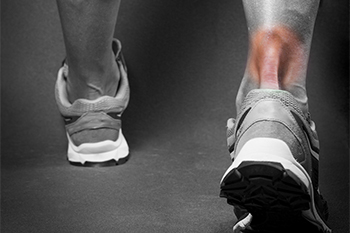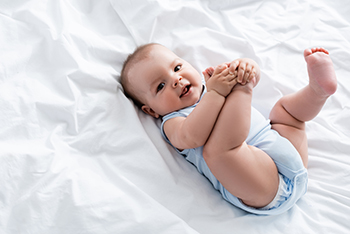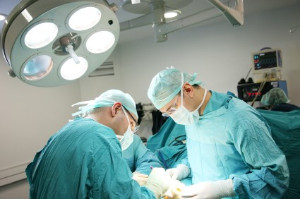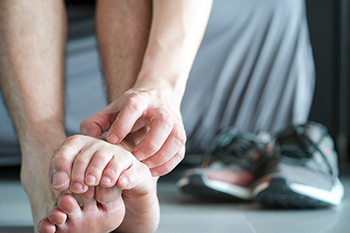Connect With Us
Blog
Items filtered by date: September 2023
Risks for Achilles Tendon Injuries

Achilles tendon injuries are becoming more prevalent, affecting young individuals with acute ruptures and older adults with chronic conditions. Acute ruptures are often related to high-energy sports in younger individuals and low-energy events in older patients. A missed diagnosis is not uncommon. Risk factors for Achilles tendon ruptures may include fluoroquinolone antibiotic use, rheumatoid arthritis, gout, and other medical conditions. Diagnosis involves a thorough physical examination, and sometimes an ultrasound, to confirm findings. Non-surgical management is increasingly favored for acute ruptures, with evidence showing good outcomes. This involves early immobilization and rehabilitation. Chronic conditions such as Achilles tendinopathy can benefit from early intervention and exercise. For more severe cases, surgery may be necessary. If you have injured your Achilles tendon, it is suggested that you make an appointment with a podiatrist who can provide you with a proper diagnosis and a tailored treatment plan.
Achilles tendon injuries need immediate attention to avoid future complications. If you have any concerns, contact Dr. Eddy Caldwell of Foot Care of Northeast Arkansas, P.A.. Our doctor can provide the care you need to keep you pain-free and on your feet.
What Is the Achilles Tendon?
The Achilles tendon is a tendon that connects the lower leg muscles and calf to the heel of the foot. It is the strongest tendon in the human body and is essential for making movement possible. Because this tendon is such an integral part of the body, any injuries to it can create immense difficulties and should immediately be presented to a doctor.
What Are the Symptoms of an Achilles Tendon Injury?
There are various types of injuries that can affect the Achilles tendon. The two most common injuries are Achilles tendinitis and ruptures of the tendon.
Achilles Tendinitis Symptoms
- Inflammation
- Dull to severe pain
- Increased blood flow to the tendon
- Thickening of the tendon
Rupture Symptoms
- Extreme pain and swelling in the foot
- Total immobility
Treatment and Prevention
Achilles tendon injuries are diagnosed by a thorough physical evaluation, which can include an MRI. Treatment involves rest, physical therapy, and in some cases, surgery. However, various preventative measures can be taken to avoid these injuries, such as:
- Thorough stretching of the tendon before and after exercise
- Strengthening exercises like calf raises, squats, leg curls, leg extensions, leg raises, lunges, and leg presses
If you have any questions please feel free to contact our office located in Jonesboro, AR . We offer the newest diagnostic tools and technology to treat your foot and ankle needs.
Fascinating Facts About Children's Feet

Children's feet are remarkable in their growth and development. Understanding the unique aspects of pediatric foot health can help parents and caregivers provide better care and support for their little ones. Babies are born with a soft and pliable structure in the foot called cartilage, which gradually ossifies into bones, and this process continues into late adolescence. Infants have a naturally wide and flat foot arch that develops into a more pronounced arch as they grow and their muscles strengthen. Additionally, children's feet contain approximately 200,000 sweat glands, which can make them more prone to odor and fungal infections. It is important to note that children often experience rapid growth spurts, and this can require frequent shoe replacements. Wearing ill-fitting shoes can result in foot problems, so regular foot measurements are crucial. Children's feet are a marvel of nature, constantly evolving as they mature. Paying attention to their unique characteristics and addressing issues early can promote healthy foot development and overall well-being. If you would like more information about specific details about children’s feet, it is suggested that you consult with a podiatrist.
Making sure that your children maintain good foot health is very important as they grow. If you have any questions, contact Dr. Eddy Caldwell of Foot Care of Northeast Arkansas, P.A.. Our doctor can provide the care you need to keep you pain-free and on your feet.
Keeping Children's Feet Healthy
Having healthy feet during childhood can help prevent medical problems later in life, namely in the back and legs. As children grow, their feet require different types of care. Here are some things to consider...
Although babies do not walk yet, it is still very important to take care of their feet.
Avoid putting tight shoes or socks on his or her feet.
Allow the baby to stretch and kick his or her feet to feel comfortable.
As a toddler, kids are now on the move and begin to develop differently. At this age, toddlers are getting a feel for walking, so don’t be alarmed if your toddler is unsteady or ‘walks funny’.
As your child gets older, it is important to teach them how to take care of their feet.
Show them proper hygiene to prevent infections such as fungus.
Be watchful for any pain or injury.
Have all injuries checked by a doctor as soon as possible.
Comfortable, protective shoes should always be worn, especially at play.
If you have any questions please feel free to contact our office located in Jonesboro, AR . We offer the newest diagnostic and treatment technologies for all your foot and ankle needs.
Heel Pain in the Morning?
Bunion Surgery May Help Provide Pain-Free Feet

Bunions, those painful bony bumps that form at the base of the big toe, can be a source of immense discomfort and self-consciousness. When conservative measures fail to provide relief, bunion surgery may become a viable option. Medically known as a bunionectomy, this surgical procedure aims to correct the misalignment of the big toe joint, eliminating pain and improving foot function. During the surgery, the podiatrist will remove the bony bump and realign the bones and tissues to their proper position. Recovery may take several weeks, during which weight must be kept off the affected foot. It is important to follow post-operative care instructions diligently. While bunion surgery is a significant step, it offers a promising path toward a life free from the pain and inconvenience of bunions, allowing you to walk comfortably and confidently once again. If you have a bunion, it is suggested that you consult with a podiatrist who can determine if surgery is correct for you.
Foot surgery is sometimes necessary to treat a foot ailment. To learn more, contact Dr. Eddy Caldwell of Foot Care of Northeast Arkansas, P.A.. Our doctor will assist you with all of your foot and ankle needs.
When Is Surgery Necessary?
Foot and ankle surgery is generally reserved for cases in which less invasive, conservative procedures have failed to alleviate the problem. Some of the cases in which surgery may be necessary include:
- Removing foot deformities like bunions and bone spurs
- Severe arthritis that has caused bone issues
- Cosmetic reconstruction
What Types of Surgery Are There?
The type of surgery you receive will depend on the nature of the problem you have. Some of the possible surgeries include:
- Bunionectomy for painful bunions
- Surgical fusion for realignment of bones
- Neuropathy decompression surgery to treat nerve damage
Benefits of Surgery
Although surgery is usually a last resort, it can provide more complete pain relief compared to non-surgical methods and may allow you to finally resume full activity.
Surgical techniques have also become increasingly sophisticated. Techniques like endoscopic surgery allow for smaller incisions and faster recovery times.
If you have any questions please feel free to contact our office located in Jonesboro, AR . We offer the newest diagnostic and treatment technologies for all your foot and ankle needs.
Unveiling Athlete's Foot Symptoms

In the world of skin infections, athlete's foot sneaks in as a notorious contender. This fungal menace, medically termed tinea pedis, brings a distinct array of symptoms that can catch anyone off guard. Redness and itching, often concentrated between the toes, mark the initial sign of its presence. As it progresses, the skin may become cracked, forming painful fissures that can lead to discomfort while walking or standing. Peeling and flaking skin, reminiscent of a sunburn, may also emerge. Athlete’s foot can extend to the soles of the feet, causing thickened, rough skin. Blisters resembling a rash can appear, and if left untreated, the infection can spread to the toenails. Recognizing these subtle yet telling signs can empower individuals to seek timely treatment. If you are affected by athlete’s foot, it is strongly suggested that you seek the counsel of a podiatrist who can offer you effective relief and treatment solutions.
Athlete’s foot is an inconvenient condition that can be easily reduced with the proper treatment. If you have any concerns about your feet and ankles, contact Dr. Eddy Caldwell from Foot Care of Northeast Arkansas, P.A.. Our doctor will treat your foot and ankle needs.
Athlete’s Foot: The Sole Story
Athlete's foot, also known as tinea pedis, can be an extremely contagious foot infection. It is commonly contracted in public changing areas and bathrooms, dormitory style living quarters, around locker rooms and public swimming pools, or anywhere your feet often come into contact with other people.
Solutions to Combat Athlete’s Foot
- Hydrate your feet by using lotion
- Exfoliate
- Buff off nails
- Use of anti-fungal products
- Examine your feet and visit your doctor if any suspicious blisters or cuts develop
Athlete’s foot can cause many irritating symptoms such as dry and flaking skin, itching, and redness. Some more severe symptoms can include bleeding and cracked skin, intense itching and burning, and even pain when walking. In the worst cases, Athlete’s foot can cause blistering as well. Speak to your podiatrist for a better understanding of the different causes of Athlete’s foot, as well as help in determining which treatment options are best for you.
If you have any questions please feel free to contact our office located in Jonesboro, AR . We offer the newest diagnostic and treatment technologies for all your foot and ankle needs.






